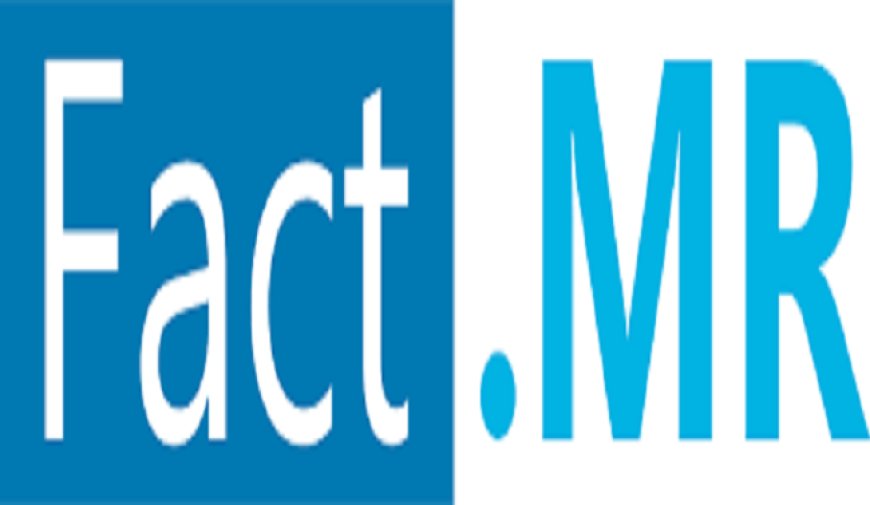Electronics Industry Expands Lithium Chloride Usage in Battery Manufacturing
The global lithium chloride market was valued at US$ 1.2 billion in 2022, and driven by rising demand in battery production, it is projected to grow at a CAGR of 6.3% over the forecast period.

The global lithium chloride market was valued at US$ 1.2 billion in 2022, and driven by rising demand in battery production, it is projected to grow at a CAGR of 6.3% over the forecast period.
Lithium chloride (LiCl) is an inorganic compound derived from lithium, widely known for its versatile applications across various industries, including chemicals, pharmaceuticals, and energy storage. As a hygroscopic material, lithium chloride is essential in the production of lithium metal and is used as a drying agent in various industrial processes. Additionally, it plays a crucial role in the manufacturing of batteries, particularly in the lithium-ion battery market, which is expanding rapidly with the rise in electric vehicle (EV) production. Lithium chloride’s stability and functionality also make it an essential component in air conditioning systems, desiccants, and as a catalyst in chemical reactions. Due to its significant industrial uses, the lithium chloride market has witnessed steady growth, driven by demand in both established and emerging sectors.
Want Full Report? Enquire Here-https://www.factmr.com/report/lithium-chloride-market
Market Outlook
The outlook for the lithium chloride market is positive, with strong growth projections over the next few years. The market is expected to be heavily influenced by the increasing demand for lithium-ion batteries, especially in the automotive and renewable energy sectors. The expanding electric vehicle (EV) market, in particular, is a major contributor to this growth, as lithium chloride is used in the production of cathodes and as an electrolyte. Furthermore, as the world shifts toward more sustainable energy solutions, the demand for batteries with higher energy density continues to rise, boosting the need for lithium and its compounds. In addition to this, ongoing developments in the field of energy storage, along with increasing investments in green technologies, will further strengthen the outlook for lithium chloride.
Market Growth
The lithium chloride market has witnessed substantial growth over the past decade, driven by the rise in demand for lithium-ion batteries and the expansion of the electric vehicle (EV) market. Governments worldwide are pushing for the adoption of electric vehicles and renewable energy solutions, which has further fueled the demand for lithium and its derivatives. In addition, technological advancements in battery chemistry and the increasing focus on energy storage solutions are also contributing to the market’s growth. Lithium chloride is expected to remain a critical compound in these industries as the transition to cleaner energy continues. The market is also experiencing growth due to the expanding industrial applications of lithium chloride, such as in the production of specialty chemicals, catalysts, and desiccants. As lithium becomes an increasingly essential raw material for a range of industries, the lithium chloride market is set for robust expansion in the coming years.
List of Key Companies Profiled in The Report
- Albemarle
- FENGCHEN GROUP CO., LTD
- Ganfeng Lithium
- Harshil Industries
- Hefei TNJ Chemical Industry Co., Ltd.
- Leverton
- Mody Chemi Pharma Ltd.
- Others
Recent Industry News
Recently, the lithium chloride market has seen significant developments, driven by both the increasing demand for lithium-ion batteries and the evolving energy storage landscape. Several companies have announced investments in lithium production facilities, recognizing the potential of lithium chloride as a critical component in energy storage solutions. A notable trend has been the growing partnerships between lithium mining companies and electric vehicle manufacturers, aimed at securing a stable supply of lithium compounds, including lithium chloride. In addition to this, numerous advancements in battery technology are being made, including efforts to increase the energy density and efficiency of lithium-ion batteries, which will likely further elevate the importance of lithium chloride. Several nations have also set ambitious goals for reducing carbon emissions, which is leading to increased demand for electric vehicles and, consequently, a greater need for lithium chloride.
Notable Developments
There have been several notable developments in the lithium chloride market in recent years. One of the most significant is the growth of electric vehicle production, which has directly impacted the demand for lithium and its derivatives, including lithium chloride. To meet this demand, several lithium producers have ramped up their operations, with new mining projects underway in key regions such as South America, Australia, and North America. Additionally, advancements in battery recycling technology are likely to affect the lithium chloride market, as these innovations will enable the recovery of lithium from used batteries, reducing the reliance on primary lithium extraction. This shift in the supply chain could lead to more sustainable sourcing practices, which would have a long-term impact on the market. Furthermore, with the increasing recognition of lithium chloride’s importance in various industries, companies are exploring new applications for the compound, particularly in the field of specialty chemicals and pharmaceuticals. These developments are expected to have a profound impact on the market, driving its growth and evolution in the coming years.
Competitive Landscape
The global lithium chloride market faces significant pricing challenges due to high production costs. With the rising demand for lithium chloride in battery production, manufacturers are increasingly focusing on forward integration to bridge the raw material supply gap. Additionally, leading players are investing in sustainable production methods to align with environmental protection guidelines. In September 2020, the US Department of Energy collaborated with top lithium chloride manufacturers on research projects aimed at improving the efficient utilization of lithium brine solutions.












